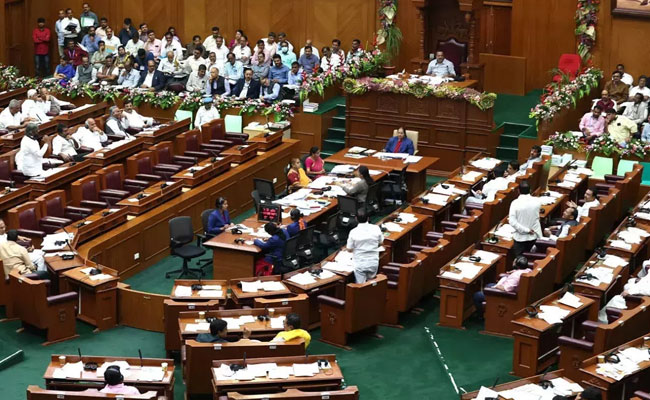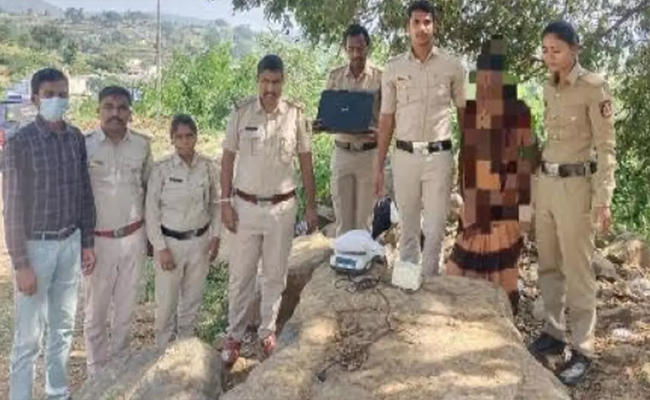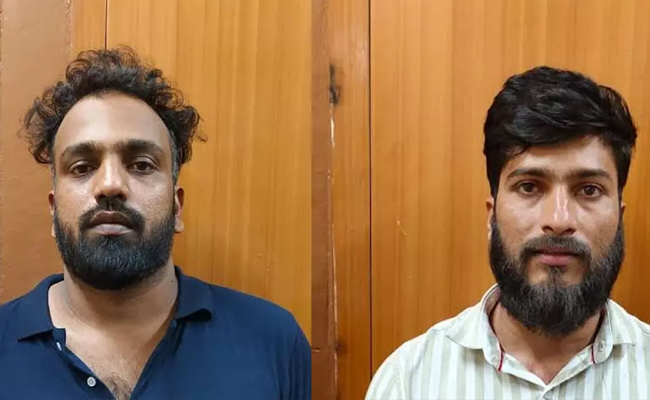Bengaluru (PTI): A bill that sought to collect funds from temples with over Rs 10 lakh annual income, which was defeated by the opposition BJP-JD(S) combine in the legislative council last week, was taken up for reconsideration and passed by the legislative assembly once again on Thursday.
The Karnataka Hindu Religious Institutions and Charitable Endowments (Amendment) Bill, 2024, will now be sent to the Governor directly for his assent, following which it will become law.
The bill was defeated by a voice vote in the upper house, where the opposition has a majority, on February 23, after it was passed by the assembly on February 21.
Piloting the bill in the assembly on Thursday, Muzrai Minister Ramalinga Reddy said: "the bill was passed by the assembly earlier, but was defeated in the council, I request the assembly to once gain pass the bill."
Speaker U T Khader then put the bill for vote and it was passed by a voice vote.
ALSO READ: Karnataka caste census report submitted to state government
'Muzrai' refers to grants made by the government for religious and charitable purposes as well as the upkeep of religious and charitable institutions, according to the Karnataka Government Gazetteer. The department of Religious and Charitable Endowments is, hence, popularly known as the Muzrai department. It administers about 35,000 Hindu religious institutions which receive grants from the Government of Karnataka
Opposition BJP and JD(S) were not present in the assembly when the bill was passed on Thursday, as they had staged a walkout earlier in the day, demanding the Congress government's resignation for its "inaction" in nabbing the culprits who allegedly shouted the 'Pakistan zindabad' slogans, after Congress member Syed Naseer Hussain was declared elected to the Rajya Sabha.
The Muzrai department's amendment bill had created a huge controversy, as it angered the opposition, especially the BJP, which has claimed that the ruling Congress was trying to fill its "empty coffers" with temple money.
The Congress then sought to turn the tables on the saffron party, pointing out that it had effected an amendment in 2011 to seek funds from high-income Hindu shrines.
The bill among other things, proposes to collect five per cent from temples whose gross income is between Rs 10 lakh and less than Rs one crore and 10 per cent from temples whose income is above Rs one crore, to be put into a Common Pool Fund, administered by 'Rajya Dharmika Parishath', which is proposed to be used for Archakas' (priests) welfare and upkeep of 'C' category temples (state controlled) whose annual income is less than Rs five lakh.
The act that was earlier amended in 2011 had made way for five per cent of the net income of temples with annual income between Rs five lakh and Rs 10 lakh and 10 per cent of the net income of temples with annual income of over Rs 10 lakh to come into the fund.
Let the Truth be known. If you read VB and like VB, please be a VB Supporter and Help us deliver the Truth to one and all.
Bengaluru: Vidyaranyapura police have arrested four persons, including a man posing as a Police Sub-Inspector (PSI), for allegedly breaking into a house, threatening the occupants, and extorting money while wearing police uniforms.
The arrested accused have been identified as Mallikarjuna, Pramod, Vinay, and Hrithik.
Police said the accused had hatched a plan to pose as police personnel, conduct fake raids, and extort money from residents by intimidation.
ALSO READ: Bantwal police arrest two men for illegal sale of narcotics, seize two vehicles, 810 gm ganja
According to the police, Mallikarjuna had failed the PSI examination twice and later falsely projected himself as a PSI. He allegedly conducted photo shoots in his hometown, Siraguppa, wearing a police uniform, baton, cap, and shoes, claiming to be serving as a PSI in Bengaluru.
On December 7, the four accused allegedly went to the house of Naveen in the Vidyaranyapura limits, threatened him with a stick and an iron rod, and claimed they had information that he was selling ganja. Under the pretext of searching, they allegedly extorted ₹87,000 through bank transfer, ₹53,000 in cash kept in the house, and ₹2,000 from his wallet.
Following Naveen’s complaint, Vidyaranyapura police registered a case and launched an operation, leading to the arrest of all four accused. Police have seized ₹45,000 in cash and the car used to commit the crime.
Further investigation is underway.





